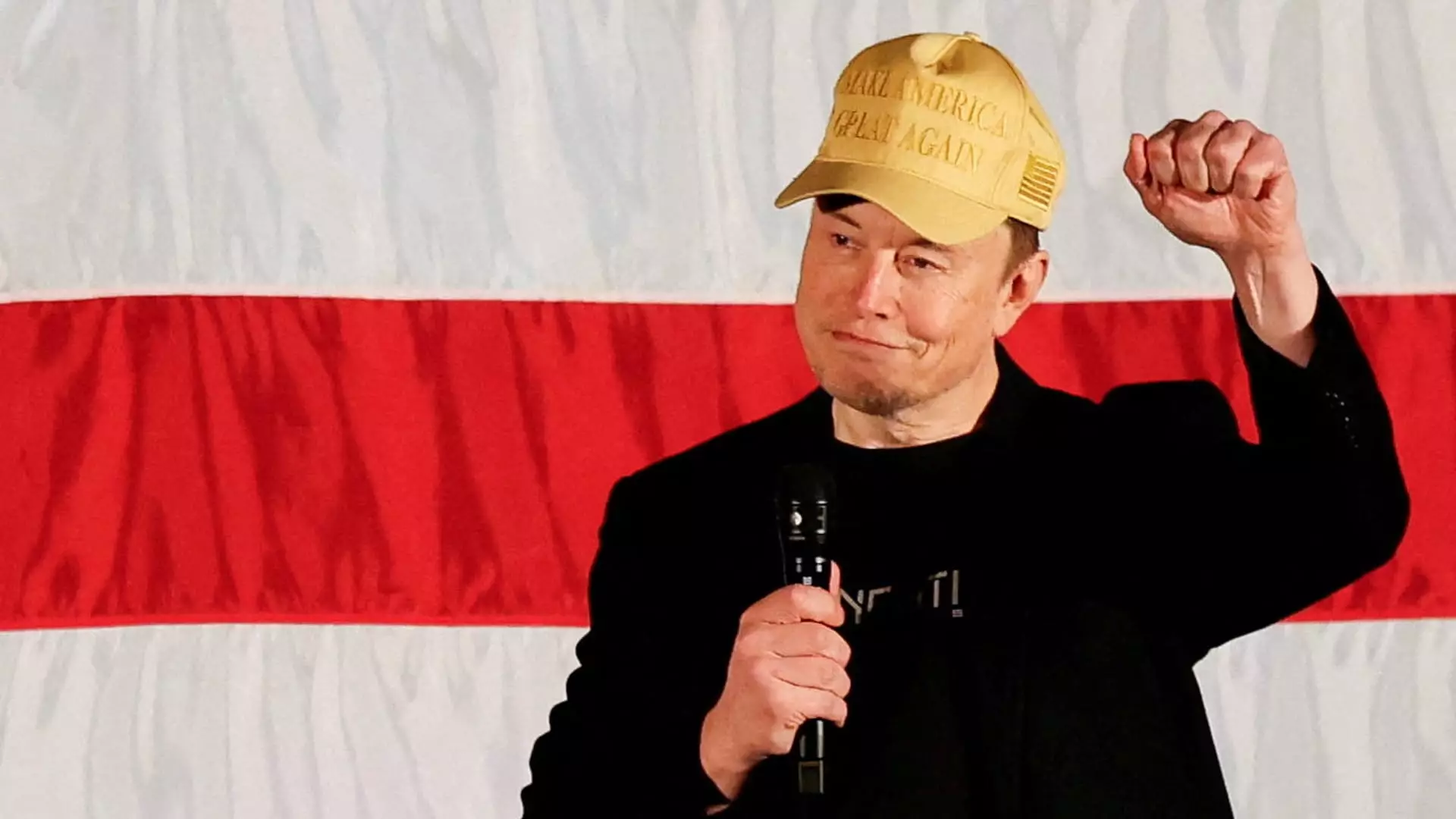Elon Musk, the tech magnate known for his ambitious ventures in electric vehicles and space exploration, has recently stirred the pot by announcing a drastic incentive aimed at boosting Republican voter turnout. At an America PAC event in Harrisburg, Pennsylvania, he revealed plans to reward registered voters with $1 million each day, contingent upon signing a petition supporting his pro-Trump political action committee. While his intentions may be rooted in mobilizing voters, this unprecedented move raises significant ethical and legal questions that warrant a deeper exploration of its implications.
Musk’s announcement came with a flair for dramatic effect, as he presented a large check to an audience member who had signed the petition. He characterized the initiative as “fun” and a “good use of money,” suggesting a playful aspect to his involvement in the political landscape. Yet, the mechanics of this scheme are far from simple. The offer is limited to voters in key swing states, including Arizona, Georgia, Michigan, Nevada, North Carolina, Pennsylvania, and Wisconsin—states that are pivotal in determining the outcome of elections. By targeting these regions, Musk is not merely promoting his political agenda; he is dabbling in the strategic management of electoral outcomes.
Legal experts have swiftly condemned Musk’s approach, branding it as a potential violation of federal election laws. According to Rick Hasen, a law professor at UCLA, any act of paying voters for registration or voting activities could lead to severe penalties. The essence of this prohibition is rooted in the fundamental principles of democratic integrity; voting should be a matter of personal conviction, not a transaction. By attempting to commodify the act of voting, Musk risks undermining the democratic process and fostering an environment of corruption.
The concern here goes beyond mere legal implications. It speaks to a broader anxiety over the influence that wealth can exert on politics. Musk’s fortune, estimated at approximately $250 billion, places him in a unique position to leverage financial resources in pursuit of political goals—a scenario that could erode public trust in electoral fairness.
Musk’s recent rhetoric suggests a trend of anti-establishment sentiment interwoven with his growing political involvement. His dismissive comments about government agencies highlight a belief that existing regulatory frameworks are stifling innovation. However, this anti-government rhetoric is particularly ironic given Musk’s extensive reliance on governmental contracts and subsidies throughout his business ventures. This contradiction raises questions about the authenticity of his anti-establishment claims and whether his critiques are genuinely aimed at reform or merely self-interest.
Moreover, Musk’s appearances at pro-Trump events have amplified controversy. His insinuations regarding the safety of politicians like Kamala Harris have drawn sharp criticism and even scrutiny from federal authorities, demonstrating the reckless abandon with which he navigates sensitive political discussions. This casual approach to weighty subjects has sparked outrage and fueled fears about the normalization of dangerous discourse in political arenas.
During the Harrisburg event, Musk also addressed questions about the future of self-driving cars. He expressed hesitancy towards federal mandates, arguing that market forces should naturally dictate technological advancements. This assertion reflects a broader philosophy that champions minimal government interference—a philosophy that often intersects with Musk’s business operations. While self-driving technology harbors tremendous potential for enhancing road safety, Musk’s reluctance to endorse regulation raises the question of whether he prioritizes corporate interests over public safety.
The contradictory nature of his statements brings to light a fundamental tension: could it be that what benefits Musk’s companies is not in line with the best interests of consumers or the general public?
Elon Musk’s foray into political incentivization has sparked a multifaceted debate that encompasses legal, ethical, and societal dimensions. His approach not only challenges the integrity of the democratic process but also highlights profound contradictions in his political philosophy and business practices. As the election approaches, the consequences of Musk’s gambit will likely reverberate through the political landscape, leaving behind questions of trust, fairness, and the role of money in politics. Society must urgently engage with and scrutinize these issues to prevent a future where democracy is overshadowed by the whims of the wealthy.

Leave a Reply